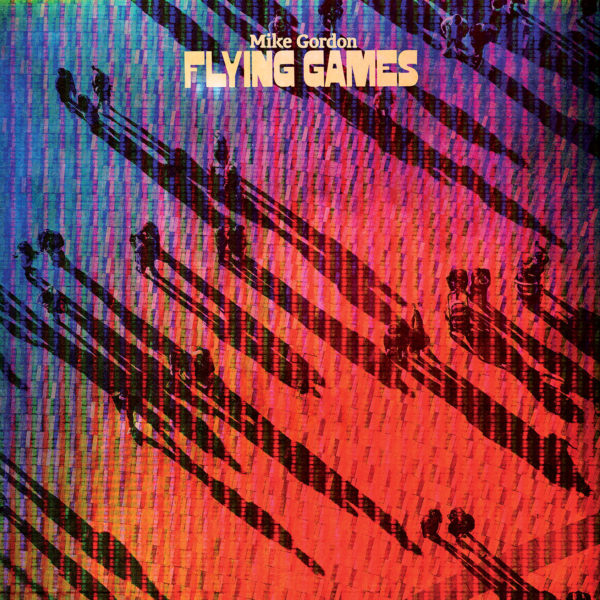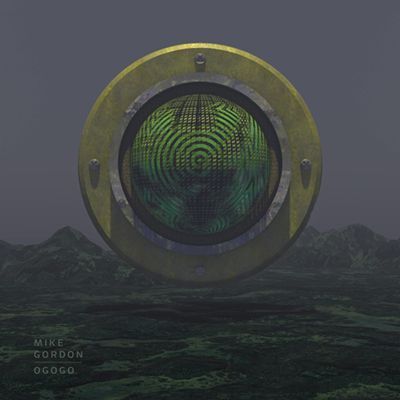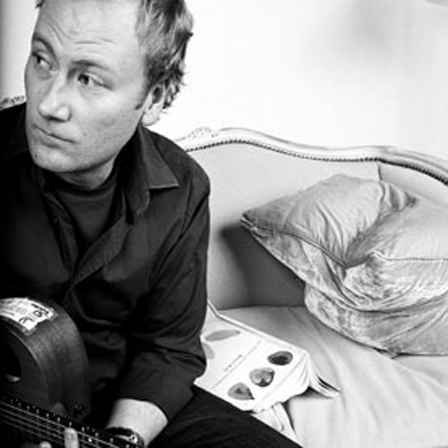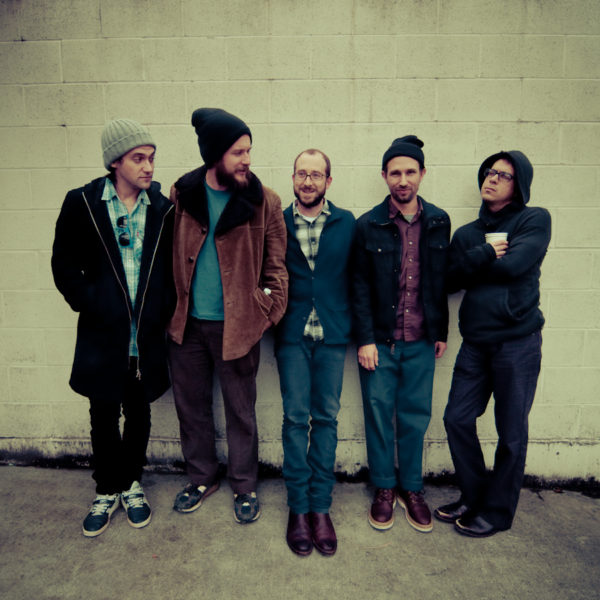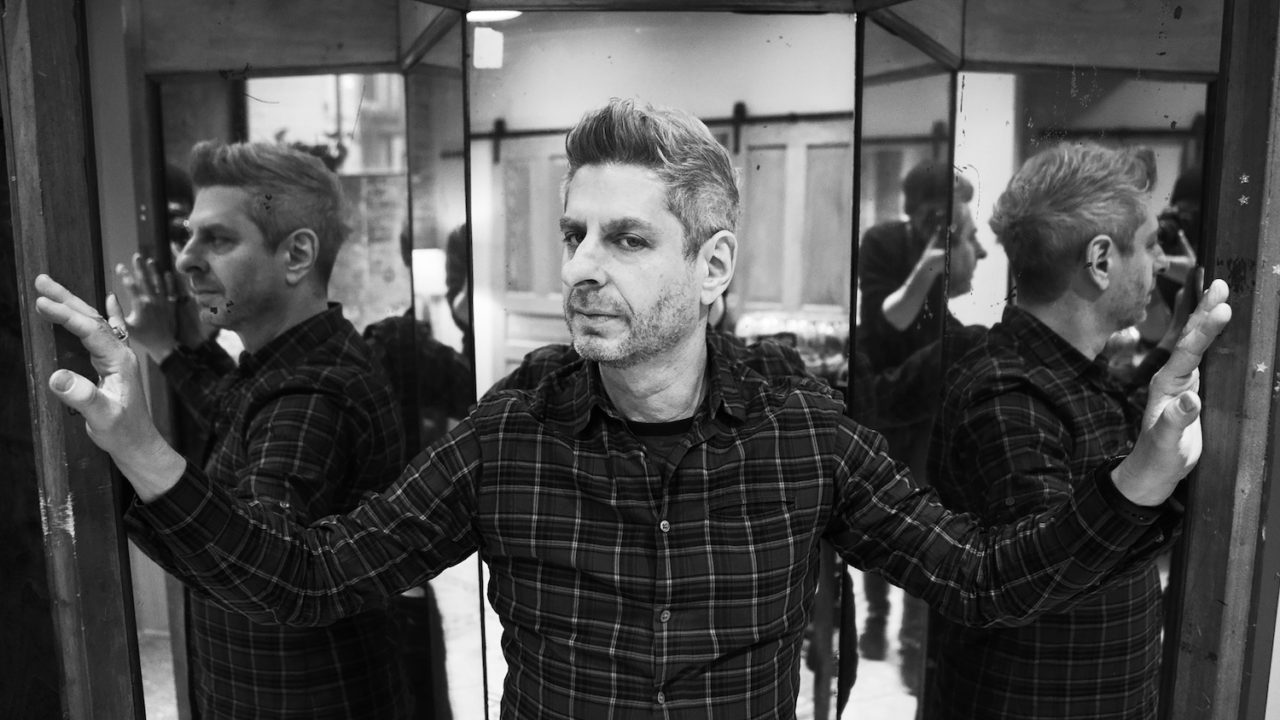
Mike Gordon
The sixth solo LP from Mike Gordon, Flying Games is an album of constant and wildly hypnotic movement, each moment animated by unexpected sounds that morph and expand and spin off into their own strange orbits. In creating such a mesmerizing body of work, the Vermont-based musician spent months writing and recording in his home studio (including much of 2020’s lockdown), immersing himself in sonic experiments ranging from the playfully spontaneous (constructing beats by banging wrenches against various pieces of farming equipment) to the hyper-specific and technical (programming a keyboard with chords sampled from’50s-era Hawaiian guitar records). Revealing entirely new dimensions of the kaleidoscopic musicianship he’s displayed as Phish’s bassist for the last four decades, the result is a work of both extraordinary vision and daring execution.
“As someone who comes from a world of telepathic improvisation, the idea of one person layering sounds alone in a room might seem a bit against the mythos,” says Gordon, who names Stevie Wonder’s largely self-contained approach on his classic 1972 album Talking Book as a touchstone for Flying Games. “But with this record I didn’t want to work in that traditional way of going into a studio with a band and recording for two weeks; I wanted to take my time and explore, and really go deep into the fabric of the music to see what we could find.”
Produced by Gordon, recorded by longtime collaborator Jared Slomoff, and mixed by six-time Grammy-winning engineer Shawn Everett (Alabama Shakes, The War on Drugs), Flying Games first took shape as Gordon and Slomoff met for daily sessions at Megaplum (the make-shift studio Gordon built from an old farmhouse on his property). As the songs became more fully formed, Gordon brought in contributions from his bandmates: drummer John Kimock, keyboardist Robert Walter, percussionist Craig Myers, and guitarist Scott Murawski.
“All of my bandmates sent in parts they’d recorded from afar, with multiple takes for their parts—for example, Scott would often share 20 tracks of guitar for just one song,” says Gordon, who plays bass, guitar, and keyboards on the album. “They were all working in an experimental way too, and then Jared and I would decide how to go about weaving in what they’d each created.”
In keeping with the eclectic sensibilities that informed past work like 2020’s Noon (a collaborative album made with acoustic-guitar luminary Leo Kottke) and 2017’s OGOGO (a pop-inspired solo effort produced by Everett), Flying Games imbues elements of everything from disco and dancehall to psych-folk and funk into Gordon’s unfettered and expansive breed of rock music. But despite endlessly evolving into new rhythms and textures and sonic patterns, the album remains firmly grounded in Gordon’s unaffected yet joyfully idiosyncratic songwriting. “One of the great things about taking so much time to make this record was that we could load the songs up as much as we wanted, then ratchet them back to cut right to whatever emotion inspired the song,” he says.
As Gordon reveals, the title to Flying Games nods to a recurring phenomenon within his experience in dreaming. “I have a lot of dreams about flying in general, but I’ve realized that in my dreams I tend to start flying right away—usually either to get to someone or be part of a situation that’s calling to me in some way, or sometimes to escape,” he says. “There’s always an emotional element to it, and this album ended up containing a bunch of songs alluding to that feeling. At the same time the title’s meant to be a celebration of life, and that ability to let loose and take flight.”
On the album-opening “Tilting,” Flying Games immediately draws the listener into its otherworldly atmosphere., The track takes on a dizzying velocity thanks to its staccato basslines and syncopated drumbeats, intensifying that momentum as Gordon speaks to the odd thrill of losing all composure. “That song is about being in a situation or a relationship where you don’t know if your footing is solid—but then accepting that and realizing you enjoy the feeling of disorientation,” says Gordon. “Whether it’s playing music or driving or experiencing something new, I’ve always felt more present when I don’t know where I’m going next.” In a moment emblematic of the album’s infinite twists and turns, “Tilting” ends on a fast-shifting profusion of textures and grooves.
A prime example of the unbounded creativity that fueled all of Flying Games, “Mull” came to life through a series of free-flowing but highly intentional musical experiments. After Murawski urged him to write a harder-hitting rock song, Gordon laid down a demo he soon adorned with such details as the industrial-edged beats he’d built by banging wrenches on tractors in his garage. But when it came time for the mixing process for “Mull,” Everett completely restructured the song by analyzing the architecture of Stevie Wonder’s “Higher Ground.”
“‘Higher Ground’ has nothing to do with ‘Mull,’ but Shawn used it as a reference for organizing the tracks or cuing certain instruments,” says Gordon. “He’s a real visionary and has so many ways of pulling himself out of his comfort zone, which all ties into my overall goal of creating a very unique layering of sounds.” As they reassembled the song, the musicians added in frenetic guitar work and merry-go-round-esque organ melodies and Theremin-like synth tones—a potent backdrop to Gordon’s ruminations on some of the more challenging aspects of human connection. “I’ve gotten more decisive as I’ve gotten older, but that song is partly about being wish-washy in situations where you’re not sure how to deal with someone who’s frustrating you,” he says. “It’s also got that moment of elation when you realize you actually don’t need that person, and you can go ahead and move on with your life.”
A stark contrast to the moody urgency of “Mull,” “Sughn Never Sets” embodies a transcendent quality that stems in part from Gordon’s use of artfully preserved fragments of live recordings. “When you’re in the middle of a jam at a show, or even just at rehearsal or sound check, there are things that happen subconsciously—almost as if the music is playing itself, like a Ouija board,” he says. Featuring elements of two live jams from two different years, “Sughn Never Sets” encompasses a vast mosaic of sounds (shimmering bells, kinetic percussion, a gloriously explosive guitar solo) while offering up an exquisitely simple reflection on gratitude for life’s smallest pleasures. “It starts off with me feeling alone and lost, but then moves into realizing that I can stay out all night and enjoy the moment for what it is,” he says. “I ended up referencing Radio Bean, which is this little bohemian club in Burlington that’s got a lot of incredible experimental music coming in. I’ve discovered so much great new music from hanging out there, and I’m really thankful that they’re still going strong.”
Referring to the making of Flying Games as a “slow and loving process,” Gordon hopes that the album might foster the same sense of exuberant communion that infuses songs like “Sughn Never Sets.” “Maybe someday I’ll make a melancholy, more contemplative album, but this time I really wanted to create something that people can crank up when they’re hanging out with friends—something that can be the soundtrack to a raging good time.”
